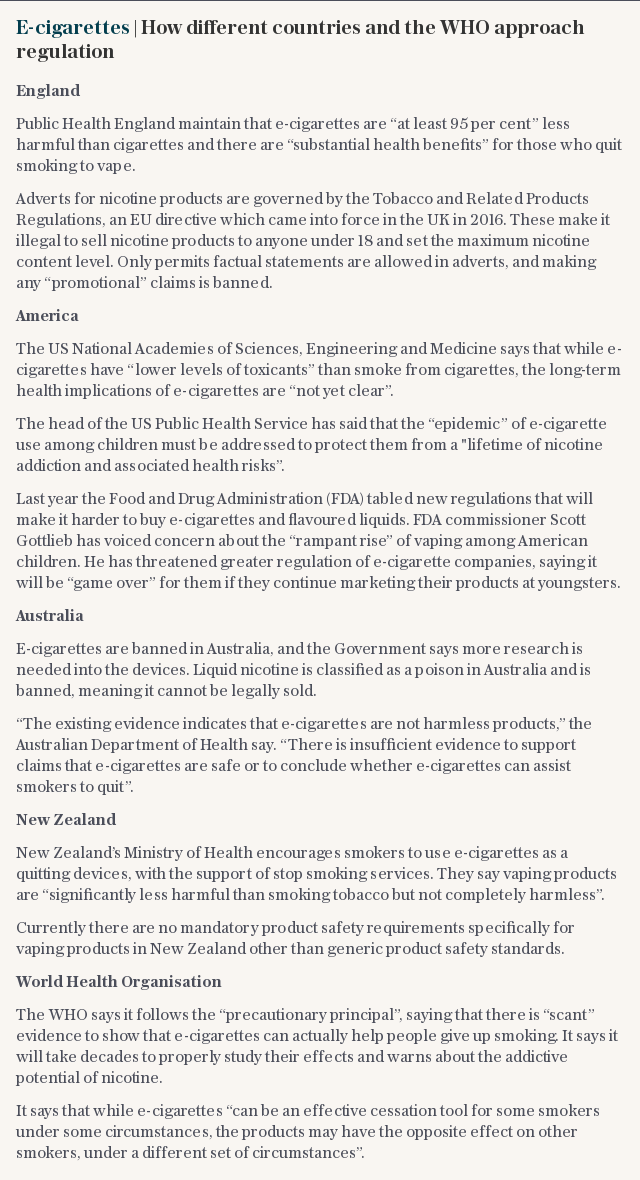WHO congratulates India on e-cigarette ban

The World Health Organization congratulated India on Thursday for its ban on electronic cigarettes, the latest evidence of a global backlash against a technology touted as safer than regular smoking.
In a tweet, the UN body's South-East Asia office said that India was the sixth country in the region to ban e-cigarettes after North Korea, Nepal, Sri Lanka, Thailand and East Timor.
A spokesman for WHO said that e-cigarette regulation should fit the capabilities of each country, welcoming the outright ban in India.
"WHO has been consistent that if e-cigarettes cannot be regulated effectively they should be banned," said Tarik Jašarević.
Billionaire Michael Bloomberg, a prominent opponent of smoking, also congratulated Prime Minister Narendra Modi for "recognizing this epidemic and putting the health of your citizens first".
Citing health concerns, the Indian government announced on Wednesday a ban on the production, manufacture, import, export, transport, sale, distribution and storage of e-cigarettes.

It came a day after New York became the second US state to outlaw flavoured e-cigarettes, and a week after President Donald Trump said his administration was considering a ban.
E-cigarettes heat up a liquid, flavoured with anything from bourbon to bubble gum and usually containing nicotine, into vapour - hence "vaping" - which is inhaled.
The technology have been pushed by producers, and also by some governments including in Europe as a safer alternative to tobacco - and as a way to kick the habit.
The vapour is missing the estimated 7,000 chemicals in tobacco smoke but does contain a number of substances that could potentially be harmful.
Critics say that apart from being potentially harmful in themselves, savvy marketing and the flavours available have turned millions of children into vapers - and into potential future smokers.
The sale of tobacco remains legal in India, prompting accusations that Modi's main aim is to protect India's domestic industry, on which some 45 million people depend for their livelihood.
India is also the world's third-largest producer of tobacco and exports around a billion dollars worth of the producr annually, with the government holding stakes in several tobacco firms, including ITC.
India is also the world's second-largest consumer of traditional tobacco products, although chewing - which still causes cancer - is much more common than smoking, killing nearly 900,000 people a year, according to the WHO.

 Yahoo News
Yahoo News 
